BJP didn't spend a paisa from the Gujarat relief fund while the Congress got an I-T exemption after coming to power.
Did the Bharatiya Janata Party spend the money collected in the name of the Gujarat Relief Fund on itself?
Why did the income-tax (I-T) department take a sudden U-turn to grant income-tax exemption to the Congress? How can leaders of the Communist Party of India (CPI) justify purchase of shares in private limited companies with party funds? And how can political parties contest elections in Bihar when they are either bankrupt or have meagre funds?
Questions, and more questions, came up as DNA carried out an exhaustive analysis of the I-T returns filed by the country’s major political parties seeking tax exemption. These returns have for years remained secret, but thanks to recent efforts and many spirited appeals by the Association for Democratic Reforms, an NGO working for improving transparency in the electoral process, the details are now tumbling out.
Over the past several days, DNA has been combing through these returns with the assistance of experts. Several startling facts have emerged, foremost being the callousness with which the I-T department has been scrutinising these returns.
There are huge gaps in the claims of many political parties in their I-T returns. How could the bankrupt RJD of Lalu Prasad contest elections in Bihar year after year? How was it possible for the Janata Dal (United) to fight elections in Bihar with assets worth just a few lakh rupees?
The BJP’s balance sheets for 2001-06 show that it collected Rs 2.68 crore as a ‘Gujarat Relief Fund’ during this period, but not a single paisa from that was disbursed for relief. Also, it’s not clear if this relief fund is part of the BJP’s net worth of Rs102.70 crore in the financial year 2005-06.
There were two I-T cases pending against the Congress. Soon after the Congress-led United Progressive Alliance (UPA) came to power in 2004, one of them, a 10-year-old case pertaining to the exemption sought by the party on foreign donations, was disposed of by the commissioner of income tax (appeals) on December 7, 2004. The decision went in the party’s favour.
The party had sought I-T exemption for foreign donations worth Rs2.5 crore and Rs25 lakh received in 1994-95 and 1995-96, respectively. The assessing officer denied the exemption.
The balance sheet of 2001-02 shows that the assessing officer raised tax demands of Rs1.80 crore and Rs14.79 lakh, respectively, on the two donations. Strangely, the Congress returns do not show who donated these amounts.
In 2002-03, when the BJP-led NDA was still in power, the assessing officer increased the tax demand on these donations to Rs2.57 crore and Rs18.12 lakh, respectively. The Congress went in for fresh appeal to the commissioner of income tax (appeals). Within months of coming to power, the party got a favourable order.
The CPI(M) had disclosed donations worth only Rs27.70 lakh to the Election Commission between 2003 and 2007, placing it among India’s poorest national parties. DNA has published a series of reports on donations declared by political parties to the commission.
But the CPI(M) is among the richest parties in the country. According to its returns, the party’s donations, a majority of which are below Rs20,000 each, add up to a whopping Rs84.84 crore between 2001 and 2006.
For the CPI, the returns bring up some uncomfortable questions. The party’s auditor, Pune-based PG Bhagwat Chartered Accountants, has stated that several private equity shares running into lakhs have been purchased by CPI leaders. The auditors have, however, not given out the names of the CPI leaders in whose names the shares were purchased. What makes things more suspicious is that two of the private firms, both based in Mumbai, are shown to have closed business.
Meanwhile, the fortunes of Mayawati’s BSP have been soaring. As per the I-T returns filed by the party, its net worth, which stood at Rs11 crore in 2001-02, shot up four times over to Rs44 crore in 2005-06. A major portion, Rs22.32 crore, of the BSP’s income in 2002-03 came from voluntary donations. Total voluntary donations received by the party between 2001 and 2006 added up to over Rs31 crore. Another major source of income for the party is membership fees, which total Rs22.70 crore for the five-year period 2001-06.
![submenu-img]() Big update on Pakistan's first-ever Moon mission and it has this China connection...
Big update on Pakistan's first-ever Moon mission and it has this China connection...![submenu-img]() 2024 Maruti Suzuki Swift officially teased ahead of launch, bookings open at price of Rs…
2024 Maruti Suzuki Swift officially teased ahead of launch, bookings open at price of Rs…![submenu-img]() 'Kyun bhai kyun?': Sheezan Khan slams actors in Sanjay Leela Bhansali's Heeramandi, says 'nobody could...'
'Kyun bhai kyun?': Sheezan Khan slams actors in Sanjay Leela Bhansali's Heeramandi, says 'nobody could...'![submenu-img]() Meet Jai Anmol, his father had net worth of over Rs 183000 crore, he is Mukesh Ambani’s…
Meet Jai Anmol, his father had net worth of over Rs 183000 crore, he is Mukesh Ambani’s…![submenu-img]() Shooting victim in California not gangster Goldy Brar, accused of Sidhu Moosewala’s murder, confirm US police
Shooting victim in California not gangster Goldy Brar, accused of Sidhu Moosewala’s murder, confirm US police![submenu-img]() DNA Verified: Is CAA an anti-Muslim law? Centre terms news report as 'misleading'
DNA Verified: Is CAA an anti-Muslim law? Centre terms news report as 'misleading'![submenu-img]() DNA Verified: Lok Sabha Elections 2024 to be held on April 19? Know truth behind viral message
DNA Verified: Lok Sabha Elections 2024 to be held on April 19? Know truth behind viral message![submenu-img]() DNA Verified: Modi govt giving students free laptops under 'One Student One Laptop' scheme? Know truth here
DNA Verified: Modi govt giving students free laptops under 'One Student One Laptop' scheme? Know truth here![submenu-img]() DNA Verified: Shah Rukh Khan denies reports of his role in release of India's naval officers from Qatar
DNA Verified: Shah Rukh Khan denies reports of his role in release of India's naval officers from Qatar![submenu-img]() DNA Verified: Is govt providing Rs 1.6 lakh benefit to girls under PM Ladli Laxmi Yojana? Know truth
DNA Verified: Is govt providing Rs 1.6 lakh benefit to girls under PM Ladli Laxmi Yojana? Know truth![submenu-img]() Remember Heyy Babyy's cute 'Angel' Juanna Sanghvi? 20 year-old looks unrecognisable now, fans say 'her comeback will...'
Remember Heyy Babyy's cute 'Angel' Juanna Sanghvi? 20 year-old looks unrecognisable now, fans say 'her comeback will...'![submenu-img]() In pics: Arti Singh stuns in red lehenga as she ties the knot with beau Dipak Chauhan in dreamy wedding
In pics: Arti Singh stuns in red lehenga as she ties the knot with beau Dipak Chauhan in dreamy wedding![submenu-img]() Actors who died due to cosmetic surgeries
Actors who died due to cosmetic surgeries![submenu-img]() See inside pics: Malayalam star Aparna Das' dreamy wedding with Manjummel Boys actor Deepak Parambol
See inside pics: Malayalam star Aparna Das' dreamy wedding with Manjummel Boys actor Deepak Parambol ![submenu-img]() In pics: Salman Khan, Alia Bhatt, Rekha, Neetu Kapoor attend grand premiere of Sanjay Leela Bhansali's Heeramandi
In pics: Salman Khan, Alia Bhatt, Rekha, Neetu Kapoor attend grand premiere of Sanjay Leela Bhansali's Heeramandi![submenu-img]() DNA Explainer: Why Harvey Weinstein's rape conviction was overturned, will beleaguered Hollywood mogul get out of jail?
DNA Explainer: Why Harvey Weinstein's rape conviction was overturned, will beleaguered Hollywood mogul get out of jail?![submenu-img]() What is inheritance tax?
What is inheritance tax?![submenu-img]() DNA Explainer: What is cloud seeding which is blamed for wreaking havoc in Dubai?
DNA Explainer: What is cloud seeding which is blamed for wreaking havoc in Dubai?![submenu-img]() DNA Explainer: What is Israel's Arrow-3 defence system used to intercept Iran's missile attack?
DNA Explainer: What is Israel's Arrow-3 defence system used to intercept Iran's missile attack?![submenu-img]() DNA Explainer: How Iranian projectiles failed to breach iron-clad Israeli air defence
DNA Explainer: How Iranian projectiles failed to breach iron-clad Israeli air defence![submenu-img]() 'Kyun bhai kyun?': Sheezan Khan slams actors in Sanjay Leela Bhansali's Heeramandi, says 'nobody could...'
'Kyun bhai kyun?': Sheezan Khan slams actors in Sanjay Leela Bhansali's Heeramandi, says 'nobody could...'![submenu-img]() Meet actress who once competed with Aishwarya Rai on her mother's insistence, became single mother at 24, she is now..
Meet actress who once competed with Aishwarya Rai on her mother's insistence, became single mother at 24, she is now..![submenu-img]() Makarand Deshpande says his scenes were cut in SS Rajamouli’s RRR: ‘It became difficult for…’
Makarand Deshpande says his scenes were cut in SS Rajamouli’s RRR: ‘It became difficult for…’![submenu-img]() Meet 70s' most daring actress, who created controversy with nude scenes, was rumoured to be dating Ratan Tata, is now...
Meet 70s' most daring actress, who created controversy with nude scenes, was rumoured to be dating Ratan Tata, is now...![submenu-img]() Meet superstar’s sister, who debuted at 57, worked with SRK, Akshay, Ajay Devgn; her films earned over Rs 1600 crore
Meet superstar’s sister, who debuted at 57, worked with SRK, Akshay, Ajay Devgn; her films earned over Rs 1600 crore![submenu-img]() IPL 2024: Spinners dominate as Punjab Kings beat Chennai Super Kings by 7 wickets
IPL 2024: Spinners dominate as Punjab Kings beat Chennai Super Kings by 7 wickets![submenu-img]() Australia T20 World Cup 2024 squad: Mitchell Marsh named captain, Steve Smith misses out, check full list here
Australia T20 World Cup 2024 squad: Mitchell Marsh named captain, Steve Smith misses out, check full list here![submenu-img]() SRH vs RR, IPL 2024: Predicted playing XI, live streaming details, weather and pitch report
SRH vs RR, IPL 2024: Predicted playing XI, live streaming details, weather and pitch report![submenu-img]() SRH vs RR IPL 2024 Dream11 prediction: Fantasy cricket tips for Sunrisers Hyderabad vs Rajasthan Royals
SRH vs RR IPL 2024 Dream11 prediction: Fantasy cricket tips for Sunrisers Hyderabad vs Rajasthan Royals ![submenu-img]() IPL 2024: Marcus Stoinis, Mohsin Khan power Lucknow Super Giants to 4-wicket win over Mumbai Indians
IPL 2024: Marcus Stoinis, Mohsin Khan power Lucknow Super Giants to 4-wicket win over Mumbai Indians![submenu-img]() Viral video: Man's 'peek-a-boo' moment with tiger sends shockwaves online, watch
Viral video: Man's 'peek-a-boo' moment with tiger sends shockwaves online, watch![submenu-img]() Viral video: Desi woman's sizzling dance to Jacqueline Fernandez’s ‘Yimmy Yimmy’ burns internet, watch
Viral video: Desi woman's sizzling dance to Jacqueline Fernandez’s ‘Yimmy Yimmy’ burns internet, watch![submenu-img]() Viral video: Men turn car into mobile swimming pool, internet reacts
Viral video: Men turn car into mobile swimming pool, internet reacts![submenu-img]() Meet Youtuber Dhruv Rathee's wife Julie, know viral claims about her and how did the two meet
Meet Youtuber Dhruv Rathee's wife Julie, know viral claims about her and how did the two meet![submenu-img]() Viral video of baby gorilla throwing tantrum in front of mother will cure your midweek blues, watch
Viral video of baby gorilla throwing tantrum in front of mother will cure your midweek blues, watch
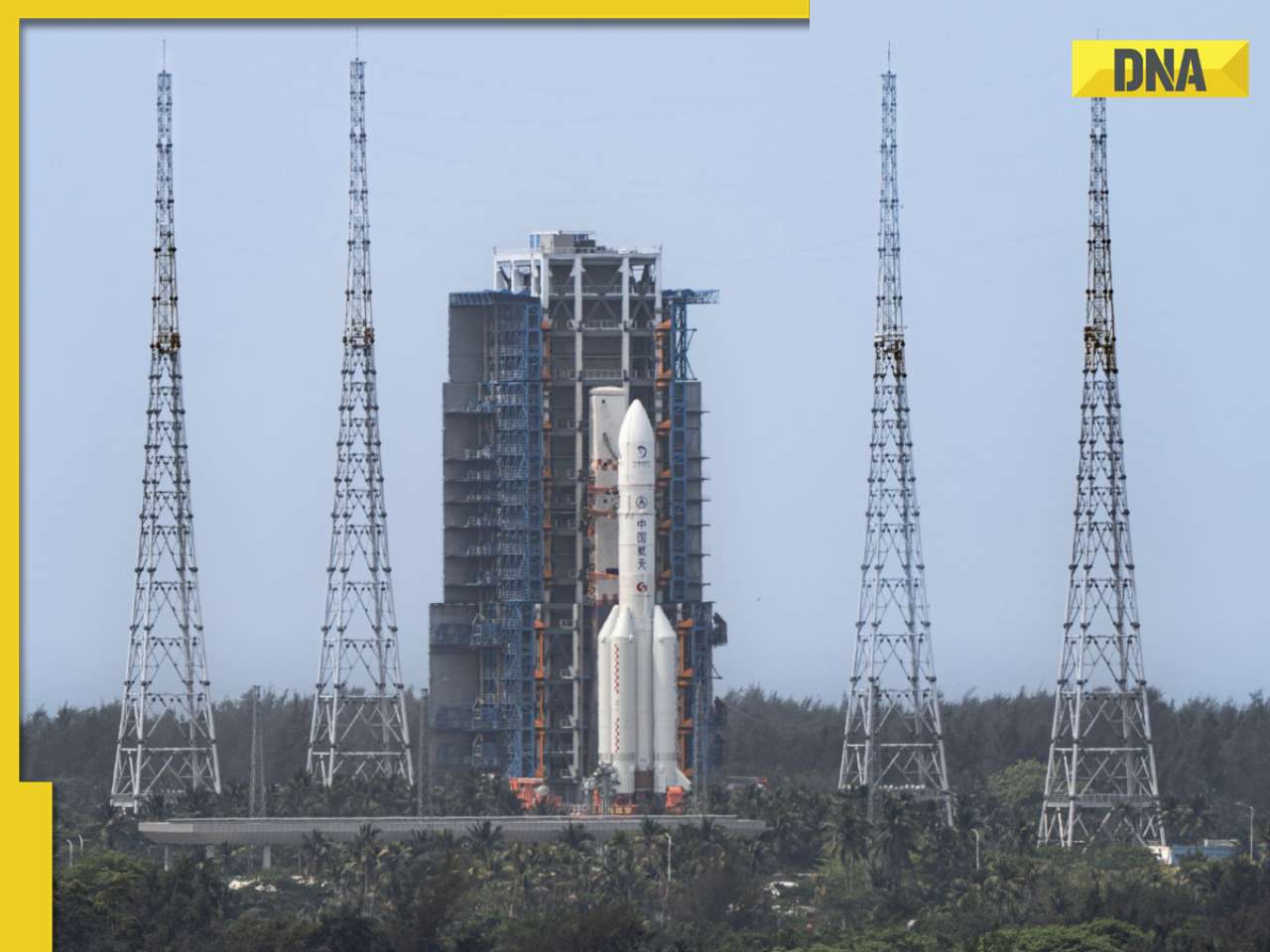



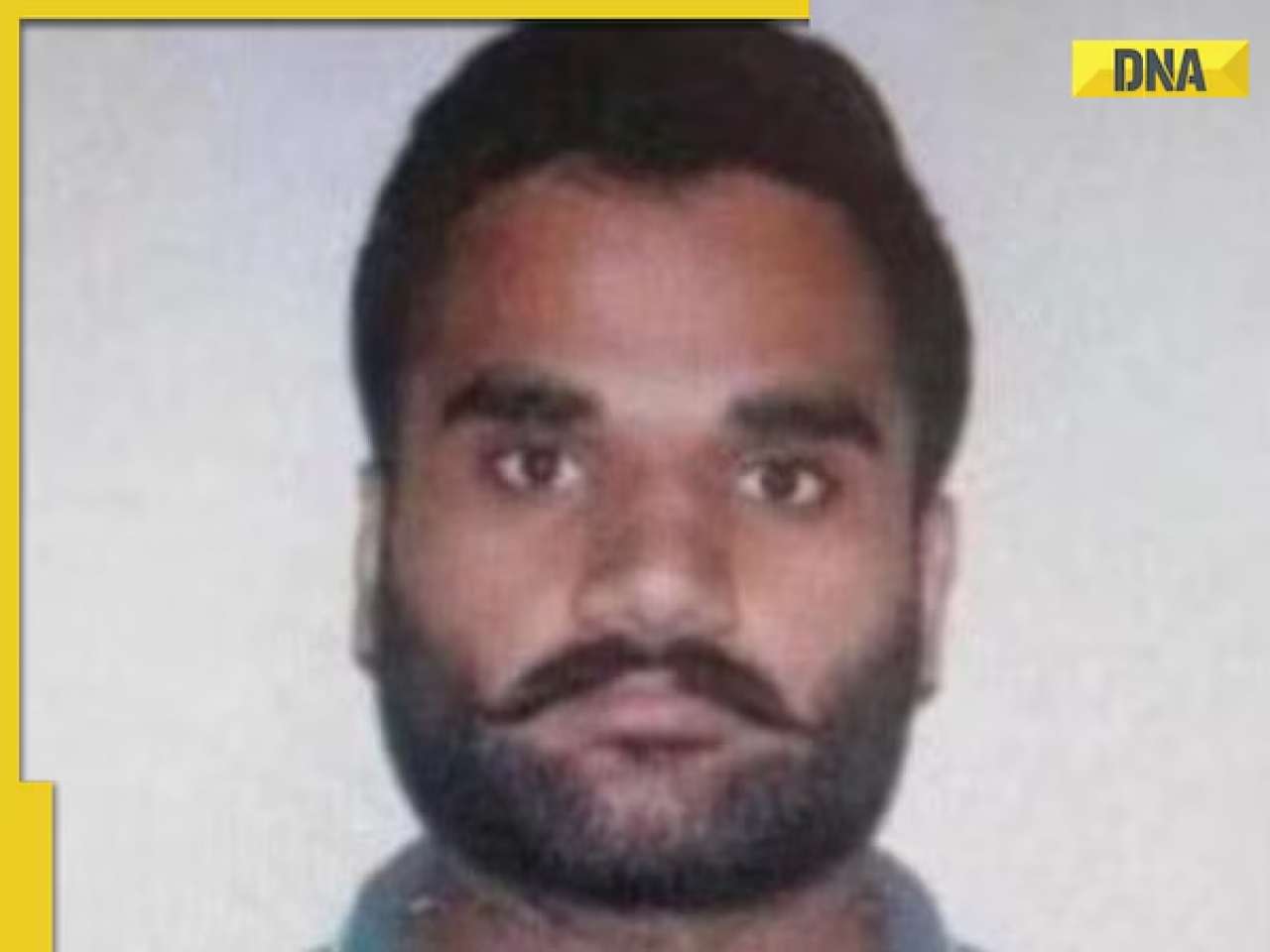




















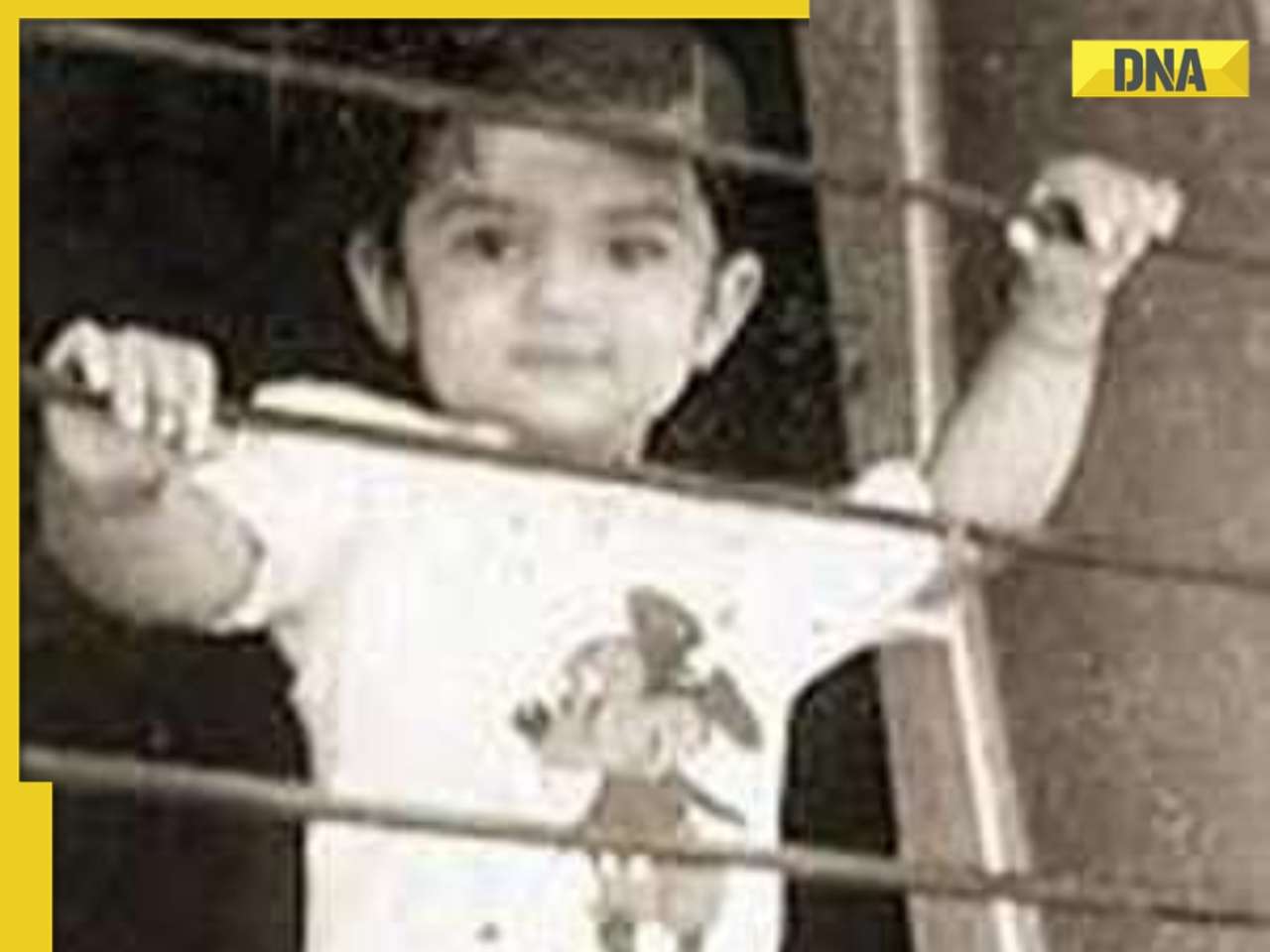


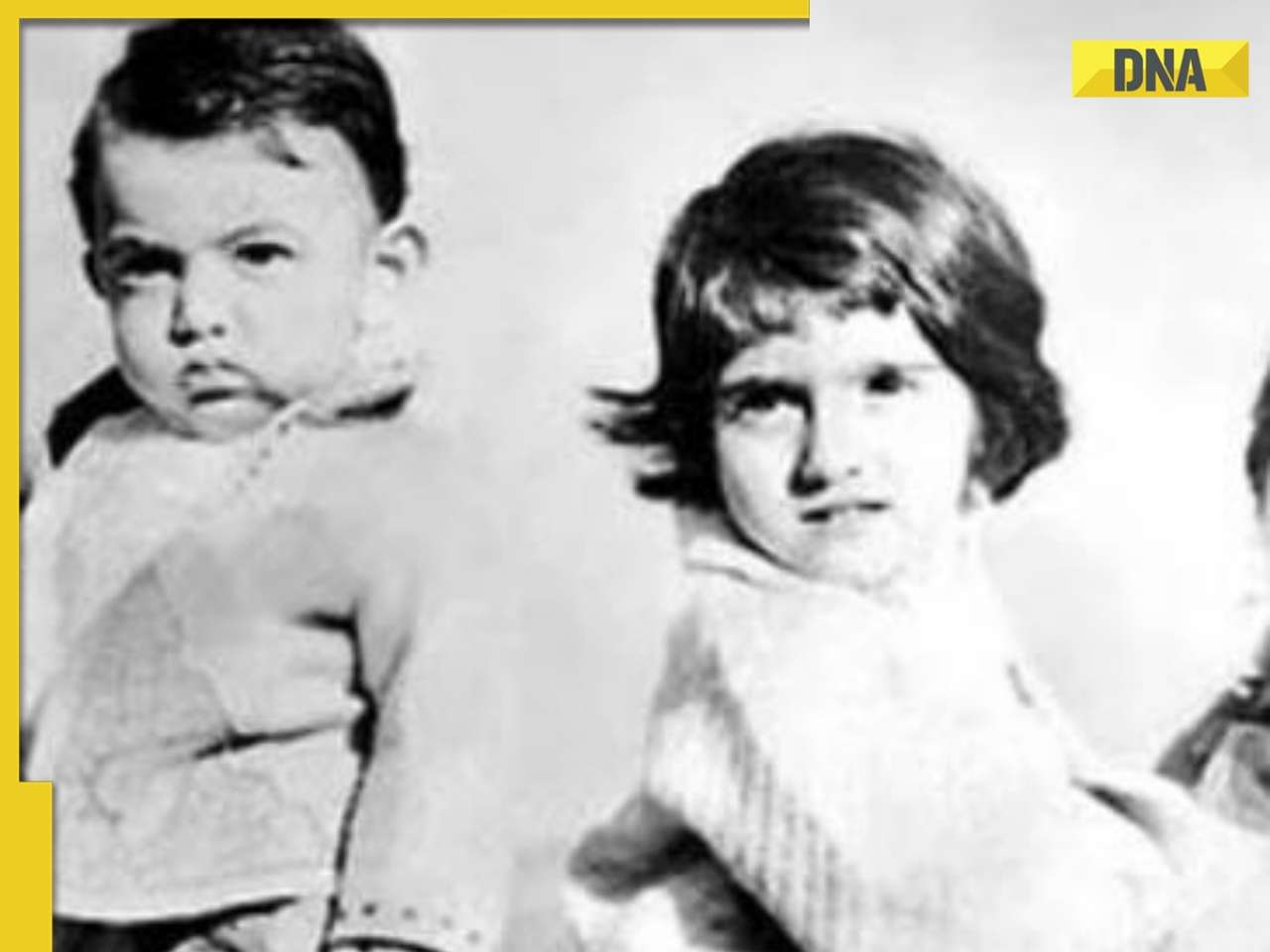

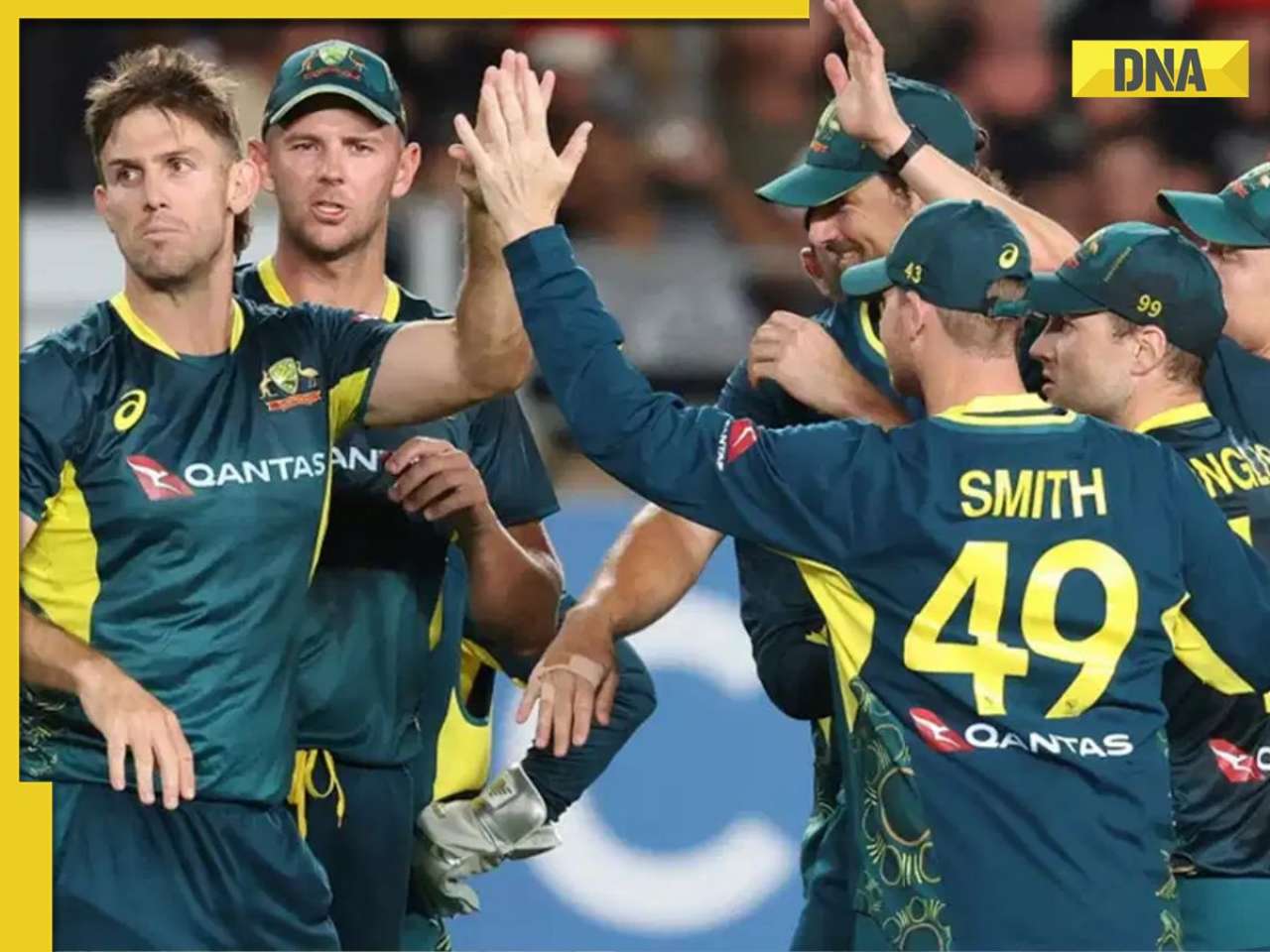














)
)
)
)
)
)